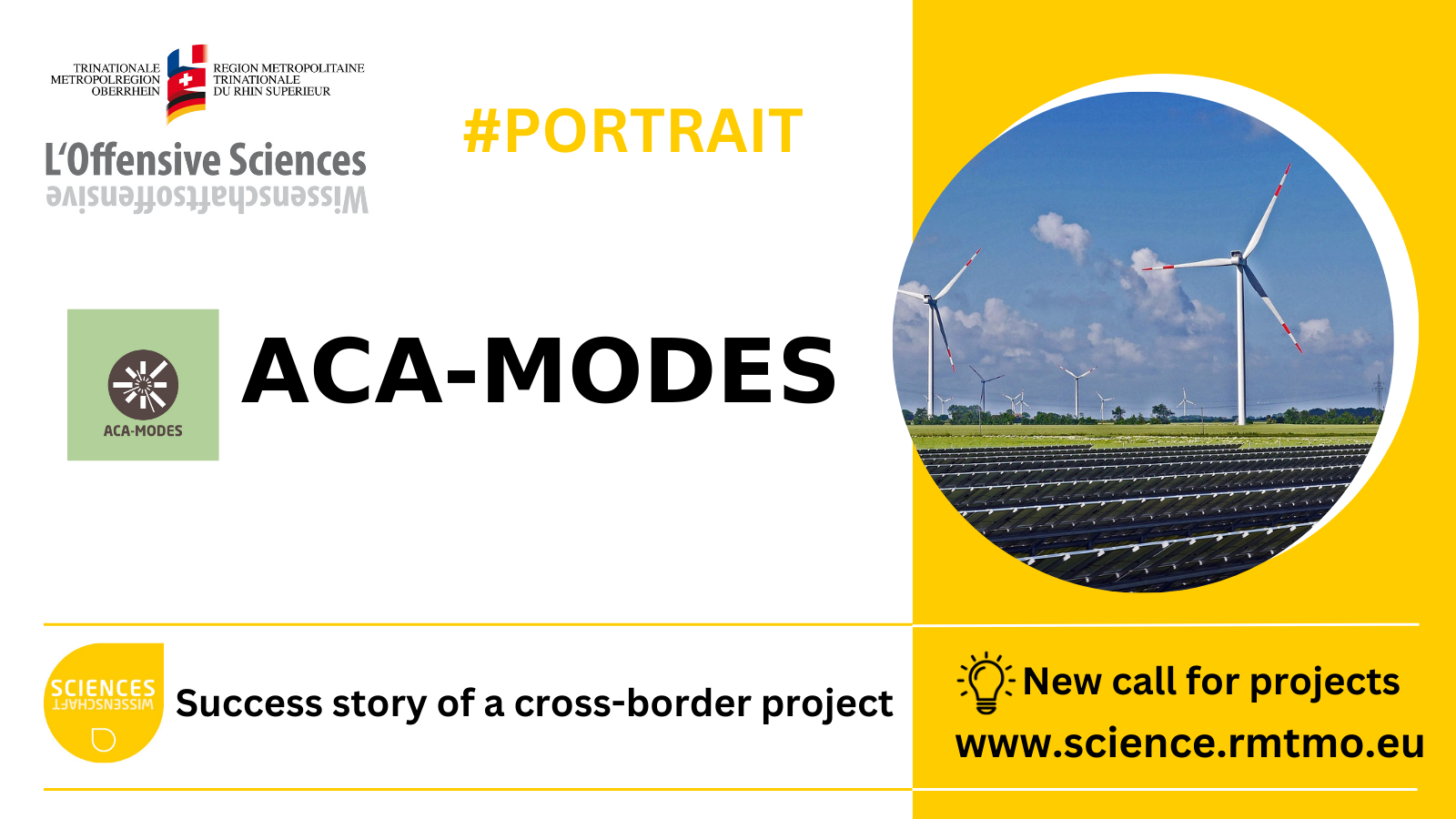Integrating an increasing share of renewable energy into the electricity grid is a challenge, because renewable energy sources are intermittent by nature: wind turbines and solar panels only produce energy when the wind is blowing and the sun is shining. To overcome this issue, the ACA-MODES consortium has developed and tested intelligent management systems at a regional scale. Adrian Bürger and Parantapa Sawant worked as technical leads for the project from Hochschule Karlsruhe and Hochschule Offenburg respectively. They finished their doctoral studies and continued as post-doctoral students during the project.
The adaptation of the electricity grid to integrate an increasing share of renewable energy is a critical need
The European Green Deal aims to achieve carbon neutrality by 2050. To decarbonise its energy system, the EU supports the development of a power sector based largely on renewable sources. But this raises new challenges. First, it means integrating a growing share of a production that is unevenly distributed and intermittent by nature. Wind and solar farms are concentrated in areas with suitable natural conditions, and their production varies seasonally, even within a single day. Today, to meet the demand for electricity, grid operators ensure that power plants produce the right amount of electricity at the right time. As storage capacity is limited, the balance between supply and demand must be maintained continuously to avoid a breakdown in the energy system. In order for the grid to manage the variability of supply due to renewable energies, various flexibility levers can be considered: better interconnecting energy systems, increasing storage capacity or setting up intelligent management systems. The second challenge raised by the growing share of renewable energy is the change of scale. Prosumer buildings, which not only consume energy, but also produce it from renewable sources, are becoming increasingly important. Local networks will therefore play a significant role in the energy grid of the future. This paves the way for an increasingly decentralised electricity system.
The ACA-MODES consortium designed intelligent management systems and tested them in a three-country framework
The ACA-MODES project aimed to improve grid flexibility by designing advanced control algorithms for energy systems. “Due to the fluctuating nature of renewable energy sources, predictive control of a lot of decentralised prosumers is needed to manage energy in a smart way. We were working on the coordination of such systems“, says Adrian Bürger. The work of the consortium consisted in developing algorithms, and then testing them in real life. Algorithms were designed to forecast the supply and demand, and coordinate and stabilise the grid. “Of course this was a technical project, very much related to engineering aspects of building energy systems, but the solutions we found will contribute to solving environmental problems, by facilitating reduction of fossil fuel usage” adds Parantapa Sawant.
The algorithms developed by the consortium were then tested in the framework of real-time coordinated operation of five energy laboratories spread over the Upper Rhine region. The Upper Rhine region, with its energy suppliers and cooperatives, is an interesting testing ground for the cross-border, grid-compatible operation of energy systems. Each laboratory consisted of a renewable energy system, storage devices and various heating, ventilation and air-conditioning components (for example heat pumps, photovoltaic panels, or solar-thermal collectors). “In these five labs, we covered all the typical energy technologies in buildings,” explains Parantapa Sawant. “Having five labs operating in parallel was challenging”, adds Adrian Bürger. “When we ran tests for the algorithms, a technical failure could occur in one lab, which is a bummer for other labs, but this is depicting reality because failures can happen anytime. So it gives a good insight of real-world applicability”.
New projects for more energy efficency are on the way!
Adrian Bürger and Parantapa Sawant continue to work in the field of Energy Informatics. Adrian Bürger co-founded PATH TO ZERO, a software services company in the field of energy. It provides optimisation services that help companies make the right decisions about decarbonisation. Parantapa Sawant is now a research and development engineer in the Building Technology Group at the Fachhochschule Nordwestschweiz. His next project will focus on smaller systems, such as single heat-pump plants or cogeneration units able to produce, store and consume energy in a smart way.
The ACA-MODES project (“Advanced Control Algorithm for the Management of Decentralised Energy Systems”) initiated in September 2019, ended in August 2022. Co-funded by the European Union under the Interreg V Upper Rhine programme and by the French and German regional partners of the “Science Offensive” initiative, it brought together six academic partners: Hochschule Offenburg, INSA Strasbourg, the University of Freiburg, Hochschule Karlsruhe, Hochschule Koblenz and Fachhochschule Nordwestschweiz. The Science Offensive: Based on its success, the initiative is to be continued for the period 2021-2027, for which two calls for projects are planned. Building on the dynamism of cross-border scientific cooperation, the co-financing partners of the Science Offensive now want to support the transfer and exploitation of the results of public research and strengthen the positive effect of scientific findings on businesses and society, for the benefit of the economic, social and ecological development of the Upper Rhine Trinational Metropolitan Region. The fourth call for projects of the Science Offensive has been launched on January 5th 2023 (closing date: 24th of March 2023) and focuses on knowledge and technology transfer while contributing to the objectives of the Trinational Metropolitan Region of the Upper Rhine. You can find all informations on the Science Offensive on the Website of the Science Pillar
